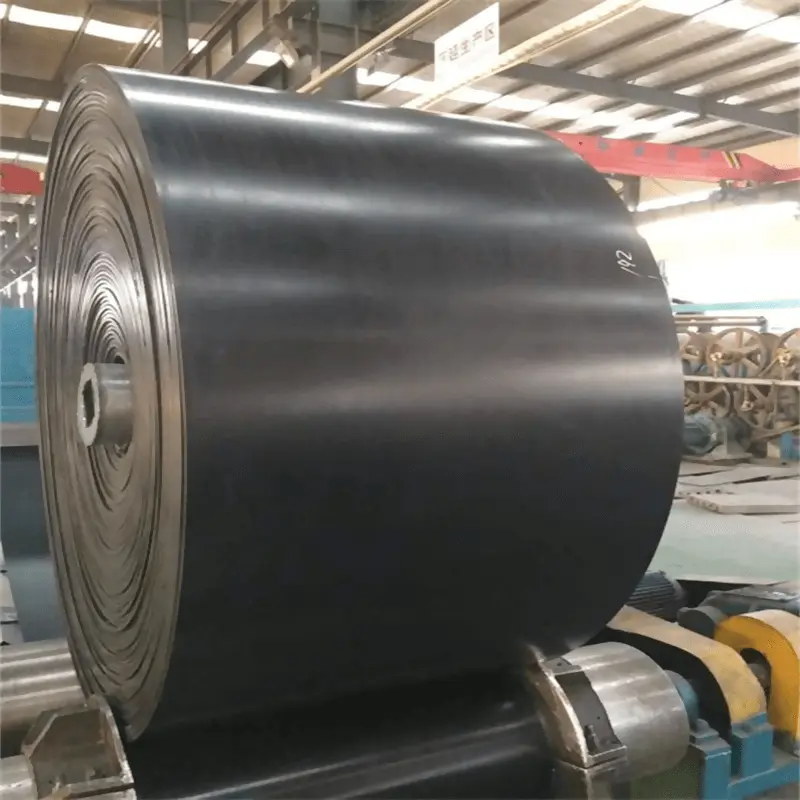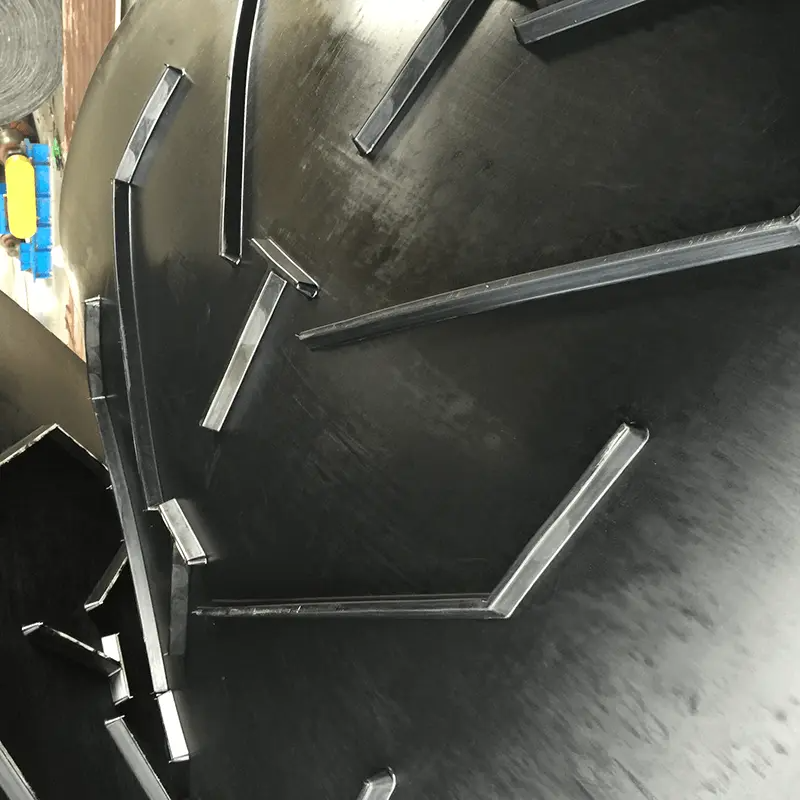Views: 182 Author: Site Editor Publish Time: 2025-08-28 Origin: Site









In today’s fast-paced industrial environment, conveyor belts are not just accessories — they are the lifelines of manufacturing, packaging, logistics, and countless other sectors. Behind every efficient conveyor system is a reliable supplier who understands the demands of different industries, the importance of quality materials, and the need for precision engineering. When selecting conveyor belt suppliers, businesses must consider far more than just cost. This comprehensive guide explores the essential qualities to look for in a supplier, the benefits of partnering with experienced providers, and how to evaluate products and services before making an investment. Whether you are in food processing, mining, automotive production, or e-commerce fulfillment, the right supplier will directly impact your operational efficiency, safety standards, and long-term profitability.
Conveyor belt suppliers serve as critical partners for manufacturers, distributors, and production facilities. They are responsible for sourcing or producing conveyor belts that meet stringent industry requirements for durability, safety, and performance. Their expertise extends beyond simply selling a product — reputable suppliers provide technical consultation, material selection guidance, customization services, and after-sales support. This ensures that each conveyor belt is perfectly suited to its intended application, from withstanding extreme temperatures in industrial bakeries to enduring abrasive conditions in mining operations.
In addition, modern suppliers are often involved in research and development, integrating new materials such as heat-resistant rubber compounds, food-grade polyurethane, or energy-efficient belt designs. This innovation helps clients improve productivity, reduce maintenance downtime, and meet regulatory compliance. A good supplier understands that a conveyor belt is not a one-size-fits-all solution; every customer’s requirements are unique, and customization plays a vital role in ensuring long-term success.

When evaluating conveyor belt suppliers, businesses must prioritize certain qualities to ensure they are making a reliable investment. First and foremost is material quality — belts must be manufactured from robust, application-specific materials that can handle load capacity, environmental exposure, and operating conditions. Industry expertise is equally important; suppliers with decades of experience are better equipped to anticipate operational challenges and recommend the most effective solutions.
Another key consideration is manufacturing capability. Suppliers who operate their own production facilities have greater control over quality assurance, lead times, and customization. Technical support and after-sales service should also be a deciding factor. A reputable supplier offers installation guidance, troubleshooting assistance, and maintenance recommendations to maximize belt lifespan.
Pricing, while important, should be viewed in the context of value rather than cost alone. A cheaper belt that wears out quickly will ultimately cost more in replacements and downtime. Reliable suppliers provide transparent quotations and detailed specifications so clients can make informed decisions. Lastly, global reach and logistics capability matter for businesses operating across multiple locations; efficient shipping, inventory management, and responsive communication are essential for uninterrupted operations.
Different industries require different types of conveyor belts, and suppliers typically offer a diverse product portfolio to meet these needs. Some of the most common categories include:
Rubber Conveyor Belts – Known for high durability and resistance to abrasion, ideal for heavy-duty industries like mining, cement, and steel.
PVC and PU Conveyor Belts – Lightweight, flexible, and often food-safe, making them suitable for food processing, pharmaceuticals, and packaging lines.
Heat-Resistant Belts – Designed to withstand extreme temperatures, perfect for foundries, baking operations, and asphalt production.
Oil-Resistant and Chemical-Resistant Belts – Used in manufacturing processes involving oils, fats, or corrosive chemicals.
Modular Plastic Belts – Easy to clean and maintain, popular in food and beverage industries.
Specialty Belts – Including cleated belts, sidewall belts, and high-grip surfaces for steep inclines or precise product handling.
Each belt type comes with unique technical specifications — thickness, tensile strength, cover grade, and working temperature range — all of which must match the application’s demands. Experienced suppliers help customers choose the right belt through in-depth consultation and testing.
Below is a sample table outlining key comparison points businesses can use when evaluating different suppliers. This ensures decisions are based on measurable criteria rather than assumptions.
| Criteria | Why It Matters | What to Look For |
|---|---|---|
| Material Quality | Directly impacts durability, performance, and safety | Certified materials, industry-specific grades, supplier testing reports |
| Industry Experience | Ensures supplier understands unique operational challenges | Years in business, portfolio of completed projects |
| Customization Capability | Enables tailor-made solutions for unique applications | In-house design team, prototyping, flexible manufacturing |
| Lead Time & Logistics | Affects production continuity and downtime prevention | Global distribution network, fast delivery, inventory availability |
| After-Sales Support | Extends equipment lifespan and ensures quick issue resolution | Technical support team, maintenance services, training programs |
| Compliance & Certifications | Meets industry safety and quality standards | ISO certifications, food-grade compliance, OSHA safety standards |
This kind of comparison helps businesses shortlist suppliers based on objective performance indicators instead of relying on marketing claims alone.

Working with experienced conveyor belt suppliers offers long-term benefits that go far beyond product delivery. For one, established suppliers are adept at identifying potential operational issues before they escalate into costly downtime. They can recommend belt designs that improve energy efficiency, reduce material spillage, or enhance product handling precision.
Another benefit is access to continuous innovation. Reputable suppliers invest in research to develop new belt materials that last longer, handle higher loads, and reduce environmental impact. This innovation can translate directly into lower maintenance costs and higher output.
Moreover, experienced suppliers maintain strict quality control processes, ensuring that every belt meets or exceeds international standards. This reduces the risk of premature wear, unexpected breakdowns, and safety hazards. They also offer training and technical guidance, empowering maintenance teams to handle belt installation and care effectively.
Lastly, a strong supplier relationship fosters long-term collaboration. Businesses that consistently work with the same trusted supplier benefit from preferential pricing, faster service, and tailored solutions that evolve alongside their operational needs.
Q1: How do I determine if a conveyor belt supplier is reliable?
Look for certifications, proven industry experience, positive client testimonials, and transparent technical documentation. Visiting their production facilities or requesting sample belts can also help verify quality.
Q2: Do conveyor belt suppliers provide installation services?
Many do, while others focus solely on manufacturing and supply. In either case, a reputable supplier should provide installation guidelines and technical support to ensure proper setup.
Q3: Can suppliers customize belts for unusual applications?
Yes, leading suppliers offer custom fabrication, such as special widths, lengths, cleats, sidewalls, and surface patterns to suit unique requirements.
Q4: How long should a high-quality conveyor belt last?
Lifespan varies depending on material, operating conditions, and maintenance practices. However, a well-maintained, high-quality belt can last several years under normal usage.
Q5: Are all conveyor belts suitable for food processing?
No. Only belts made from food-grade materials like FDA-approved PVC or PU are safe for direct contact with food products.
Selecting the right conveyor belt supplier is a strategic decision that affects every level of your production process. The right partner will provide not only a product but also the expertise, customization, and ongoing support that ensure maximum return on investment. By focusing on factors like material quality, industry experience, technical capability, and service standards, businesses can secure a supply chain partner who contributes to long-term operational success.
As industries evolve, so too will the demands on conveyor systems. By partnering with a supplier committed to innovation, quality, and customer satisfaction, companies can ensure their conveyor systems remain reliable, efficient, and compliant with the latest industry standards for years to come.
